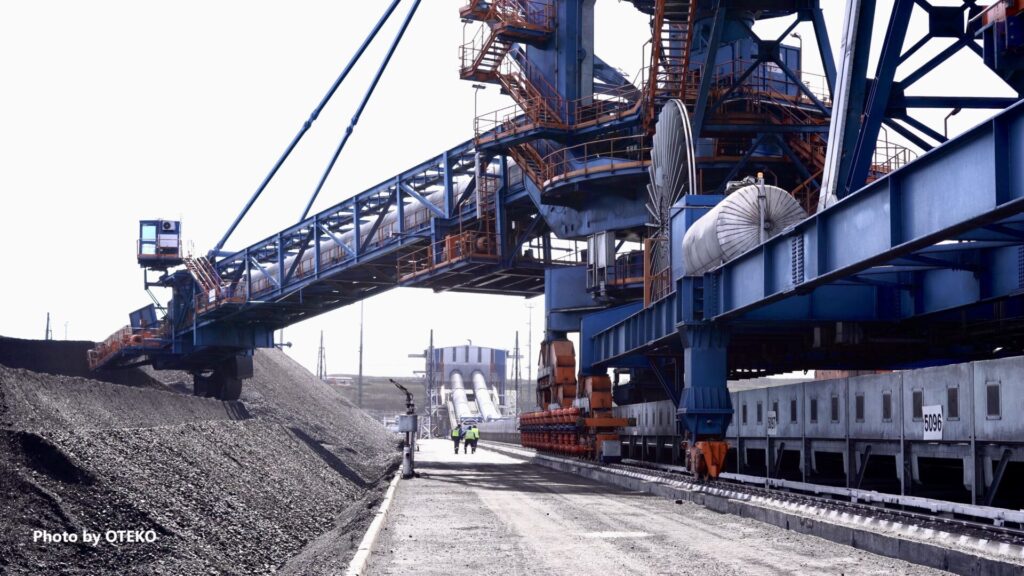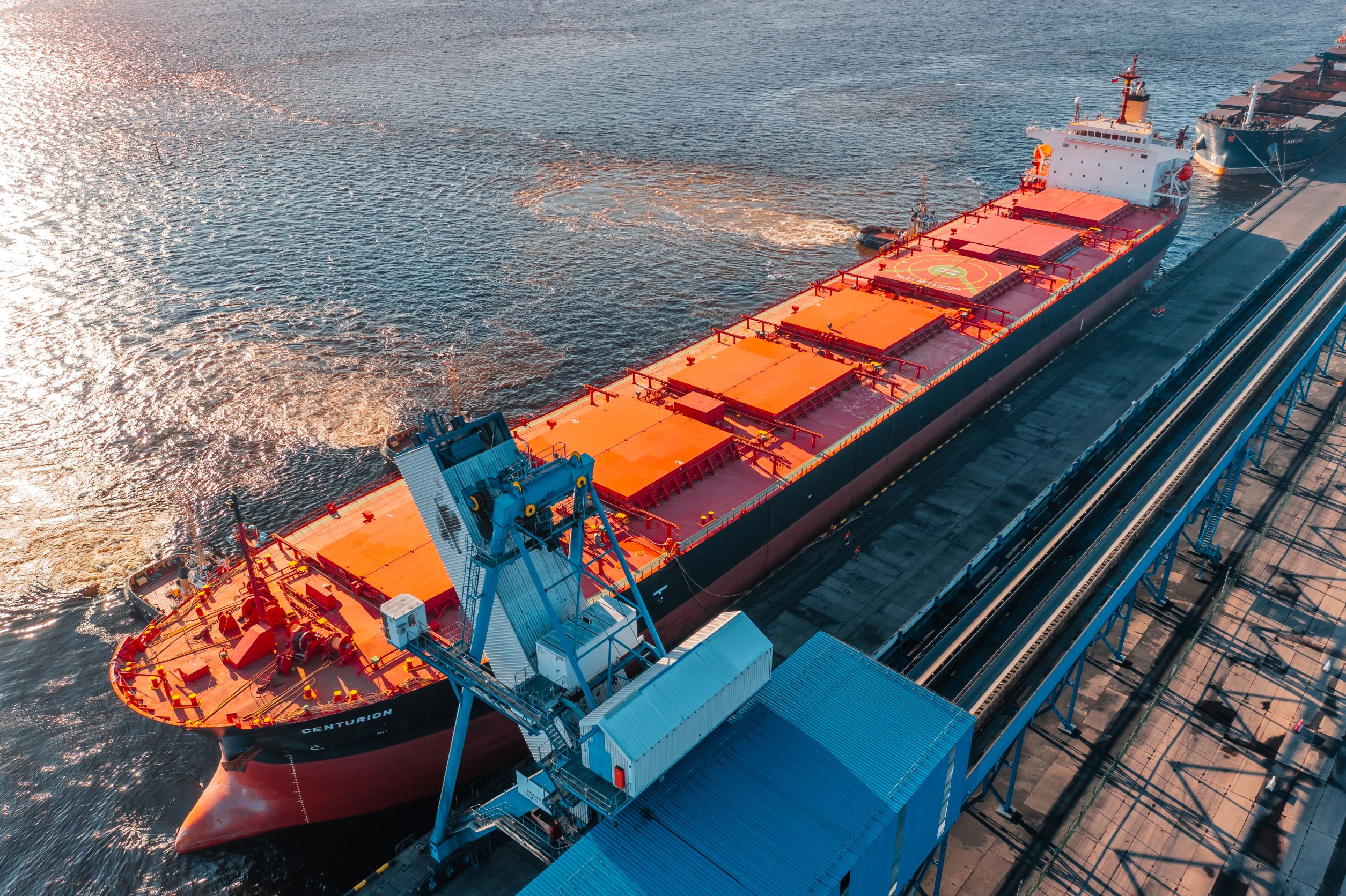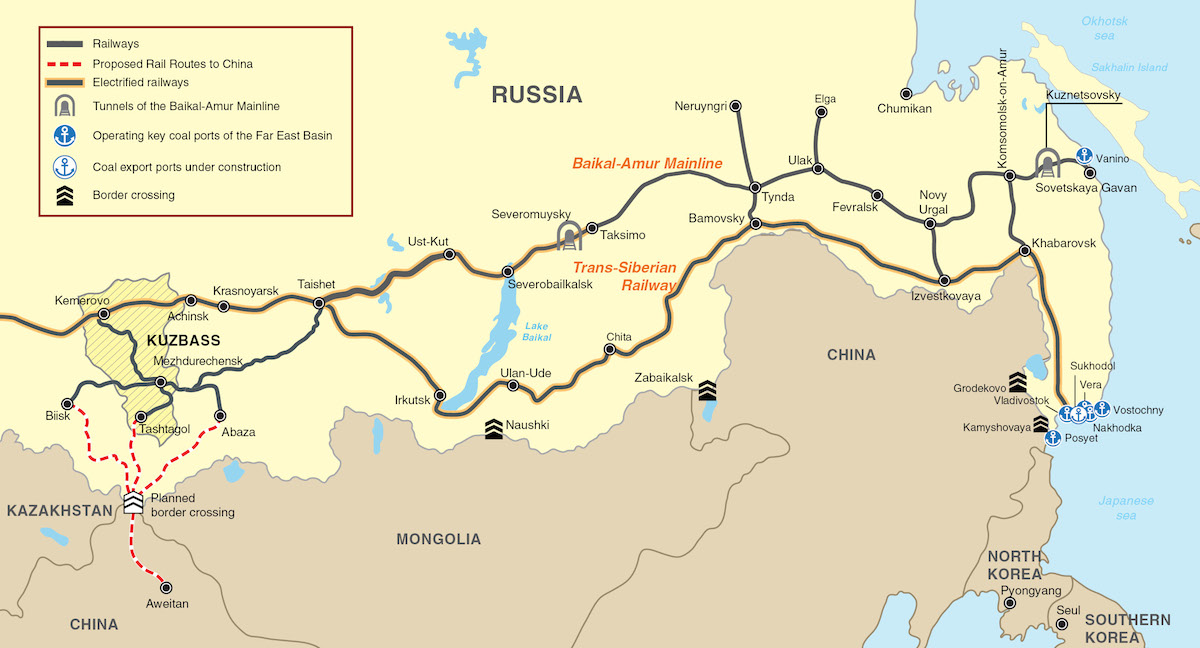
The continued downturn in coal export supplies through OTEKO’s terminal in the port of Taman intensified in August 2024. Throughput in August 2024 fell to 0.97 mio t vs. 1.7 mio t in July 2024. In January-August 2024, OTEKO’s export shipments tumbled to 7.7 mio t (-9.6 mio t or -55.4% y-o-y).
In August, Russian Railways (RZD) agreed coal suppliers’ applications for rail deliveries of 1.45 mio t to the port. Nevertheless, actual shipments amounted to 0.97 mio t. For September, RZD approved transportation of 1.36 mio t of coal to the terminal (-6.2% vs. August 2024), actual shipments are tentatively estimated at 0.95 mio t, while in 2023 the average monthly volume of rail shipments totaled 2.5.
The drop in rail deliveries to ports in the South of Russia is attributed to high seasonal passenger traffic on the route, shortage of trains, as well as intensive RZD’s construction works to develop railway access to southern terminals. Coal supplies to southern ports, including Taman, are sharply shrinking.
Less than half of the scheduled volumes will reach the terminals due to railroad restrictions, thus the availability of coal in southern ports will stay extremely tight in 2024-2025. In turn, the rail capacity deficit is reflected in the growth of coal transshipment rates in Taman.
Export shipments from Taman began to decrease in late 2023, when several coal producers suspended shipments to the OTEKO terminal because of excessive transshipment rates of around 40 USD/t. In May, under pressure brought by the Federal Antimonopoly Service (FAS) and exporters, the tariffs were reduced, albeit insufficiently, but coal handling started to gradually recover, however, the rates were raised again.
In August 2024, the FAS initiated a legal case against OTEKO because the tariffs in Taman were recognized as economically unjustified.
The FAS found that the company’s actions violated the antimonopoly law and infringed the interests of consumers, therefore OTEKO is subject to a fine, which may reach 15% of revenues for setting a monopoly high price.
The regulator’s claims are based on insufficient justification of the tariff increase. Given that global coal indices dropped to the level of 2015-2016, the handling rate and railroad tariffs should correspond to the prices of those years, but OTEKO’s rate significantly exceeds it and continues to rise, resulting in suspension of shipments by some coal producers again, thus increasing the shortage of coal on the world market.
The drop in coal export supplies is linked to critical logistical issues, as well as international sanctions, depressed world prices and high production costs, forcing most producers to export coal at zero or negative margins. Russian suppliers reduce exports on all routes.
Coal shipments via terminals in the South and North-West remain unprofitable, so the capacities of OTEKO’s coal terminal infrastructure are likely to remain underutilized.
In January-August 2024, overall coal handling in Russian ports plunged to 124.8 mio t (-16.3 mio t or -11.5% y-o-y).
Source: CCA Analytics



